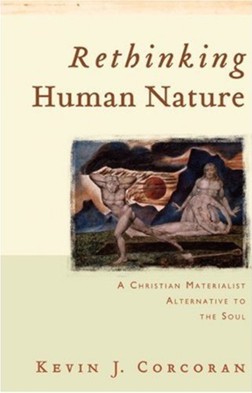 Here are our big questions in this series of posts: How do we move beyond the Bible? Should we? Better yet: Since we have to, how do we move beyond the Bible into our world but do this biblically? This is the concern of Zondervan’s new Counterpoint book edited by Gary Meadors: Four Views on Moving beyond the Bible to Theology (Counterpoints: Bible and Theology)
Here are our big questions in this series of posts: How do we move beyond the Bible? Should we? Better yet: Since we have to, how do we move beyond the Bible into our world but do this biblically? This is the concern of Zondervan’s new Counterpoint book edited by Gary Meadors: Four Views on Moving beyond the Bible to Theology (Counterpoints: Bible and Theology)
.
Let’s begin today with a question: Do you think it is “biblical” to divorce on the grounds of either mental cruelty or physical abuse? How do you get from what the Bible says about divorce’s legitimate reasons to your “yes”? What does Vanhoozer’s theo-dramatic approach teach us about permissible grounds for divorce?
I asked a number of Bible folks in New Orleans last weekend the question above, and some said “No. Physical abuse is not permissible grounds for divorce.” Other said, “Of course” and some tried to cover physical abuse with “except for sexual immorality” in Matthew 5 (which I think is not a part of Matthew 5 but I appreciate the attempt to think biblically).
Today we look at Kevin Vanhoozer’s proposal. Here’s an opening statement of his: “John the Baptist had to prepare the way of the Lord; our task is to continue it.” Here is the issue: what does it mean to “continue” and how do we “continue” the task in a way that is biblical and Spirit-led? In a way that reminds of William Webb’s approach, Vanhoozer criticizes AJ Jacobs for taking the letter seriously and not getting to the spirit of the letter.
Vanhoozer believes we have to use all the disciplines and the church in order to discern how to live biblically today. It begins by recognizing the theo-drama of the Bible: the Bible is Story in that it is a series of events that cohere and provide a lens through which Christians can think. In fact, aping words of the postmodernists, Kevin says it is theodrama “all the way down.”
The big difference between the redemptive-historical approach (he refers to Vos) and Vanhoozer’s theo-dramatic approach is that Vanhoozer’s focuses on our extending, continuing and participating (reverse order of course) in the biblical drama by performing that drama in our world today.
Vanhoozer’s known for clever lines (which are too often repeated); here’s one that sums his approach up: “the point is not to extract a principle through a procedure but to become a wiser person precisely by considering particular instances of canonical wisdom: not abstract truth but concrete wisdom-in-act” (158-159). Action is inherent to the canonical interpretation; the Bible is the Script that needs to be performed. Theology helps the church live out the Bible.
On performance: we “unfold” what is “infolded” in the canonical text. Then Vanhoozer moves to improvisation: at Nicea repetition wasn’t enough; there had to be creative improvisation (homoousios).
There are five acts: creation, election of Israel, Christ, Church and consummation. We live in Act 4, not 2, 3 or 5. As the church moves forward to continue the drama it has the great tradition to guide it. The operative word for the church is “judgment.” It renders judgment on how to respond in its world.
Vanhoozer, unlike the other authors who were fixed on moral issues, explores theological issues — and he looks at Mary. He also looks at transsexuality.
Here are our big questions in this series of posts: How do we move beyond the Bible? Should we? Better yet: Since we have to, how do we move beyond the Bible into our world but do this biblically? This is the concern of Zondervan’s new Counterpoint book edited by Gary Meadors: Four Views on Moving beyond the Bible to Theology (Counterpoints: Bible and Theology)

